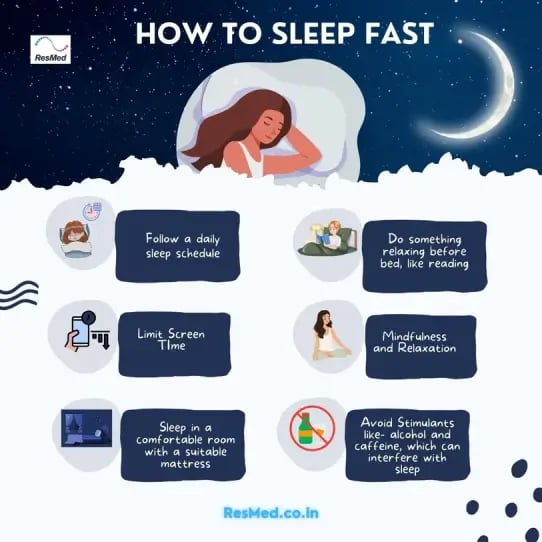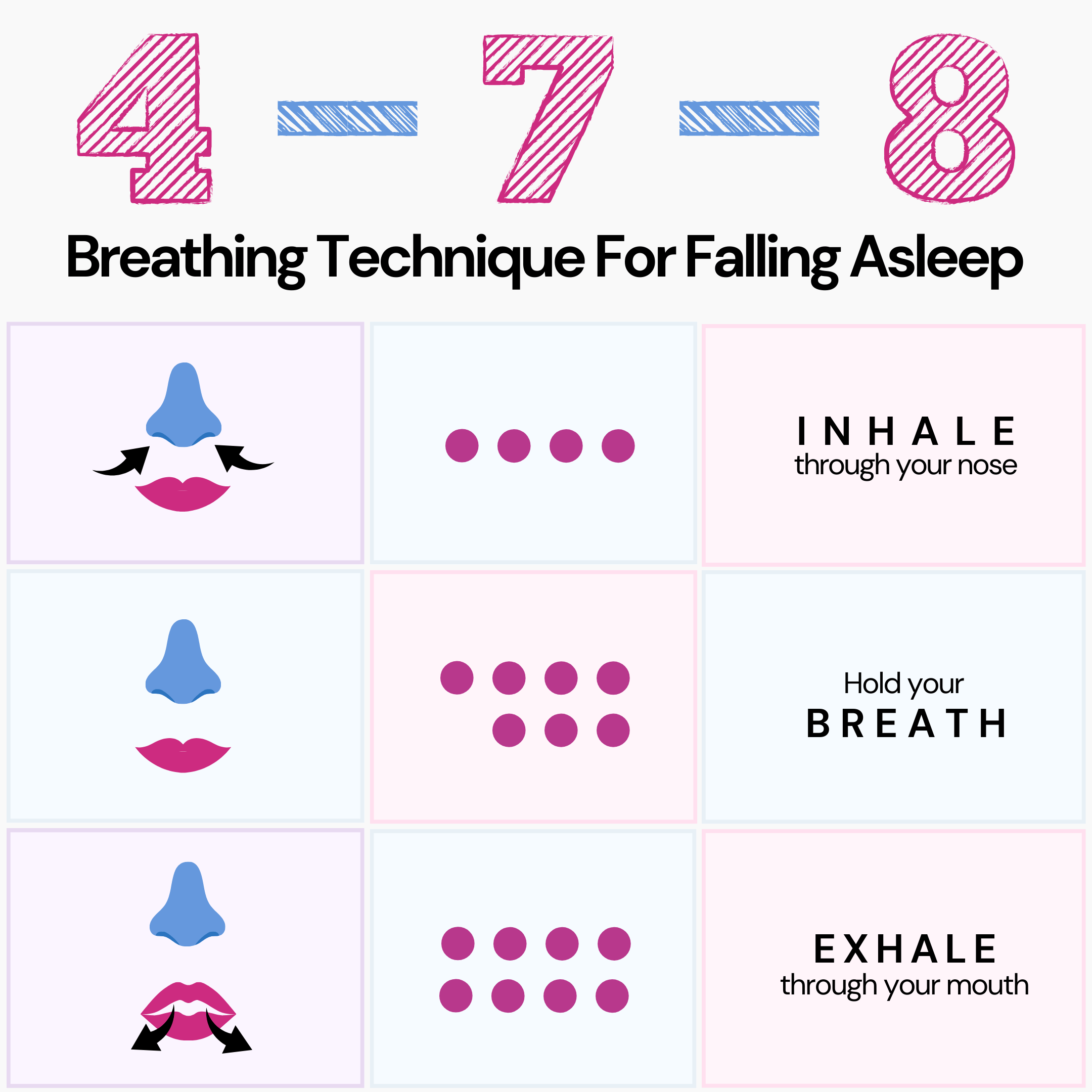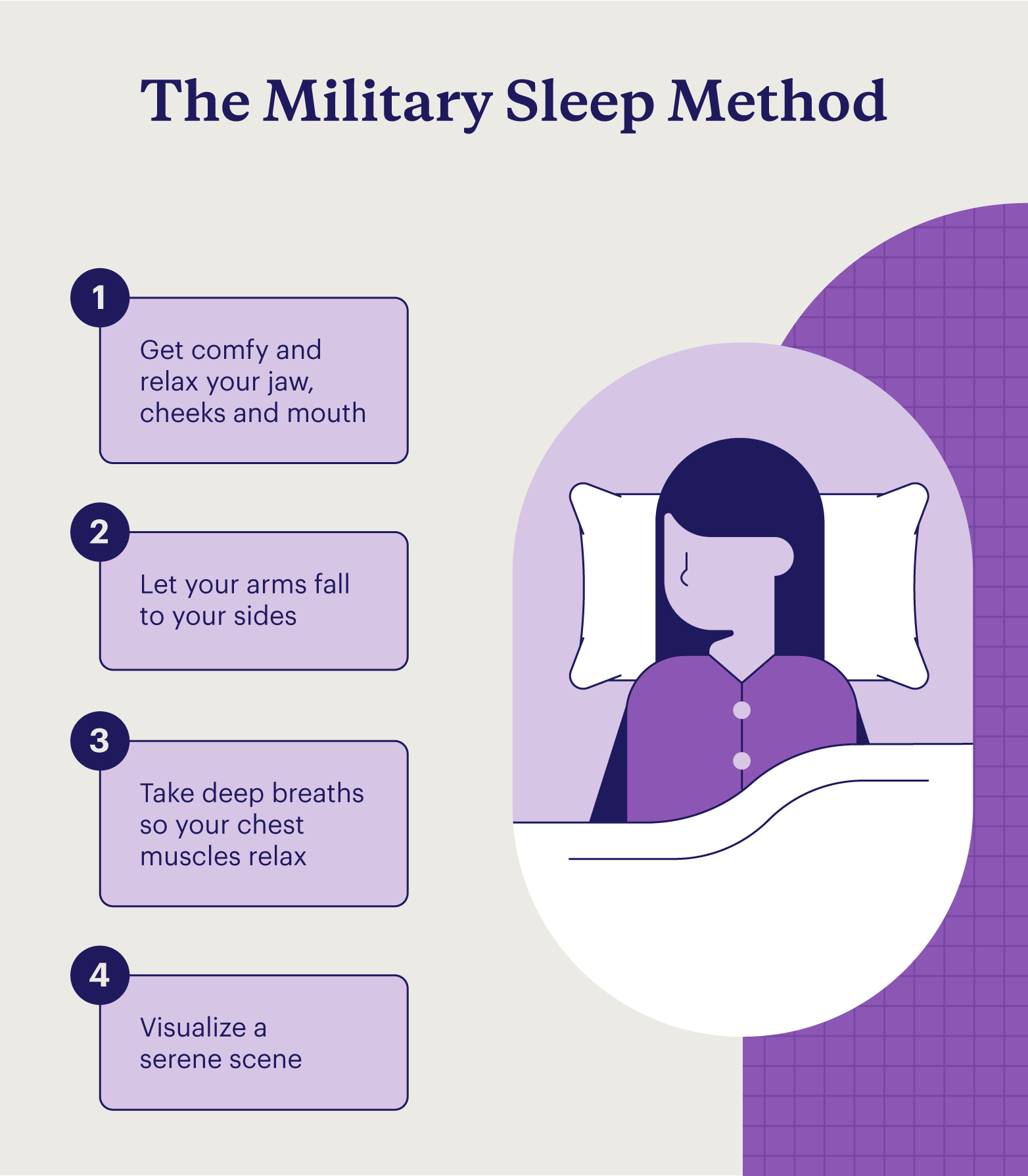Do you often find yourself tossing and turning at night, unable to fall asleep fast? You’re not alone.
Many people struggle with racing thoughts and restless bodies that prevent them from drifting off into a peaceful slumber. Imagine waking up refreshed and ready to conquer the day after a night of deep, uninterrupted sleep. Sounds like a dream, right?
It’s not as far-fetched as it seems. By understanding a few simple techniques and adjustments, you can transform your nightly routine and fall asleep faster than ever before. Keep reading to discover how you can turn bedtime into a blissful escape and finally enjoy the restful nights you deserve.
Sleep Environment
Creating the right sleep environment can help you fall asleep faster. Your bedroom should be a peaceful retreat. A place where your mind can relax. Let’s explore how to set this up perfectly.
Optimal Bedroom Setup
Your bedroom should be tidy and organized. A clutter-free space promotes calmness. Choose a comfortable mattress and pillows. They play a big role in your sleep quality. Keep your bedding clean and fresh. This enhances your sleeping experience.
Temperature And Lighting
Maintain a cool room temperature for better sleep. A temperature between 60-67°F is ideal. Use blackout curtains to block outside light. Dim the lights an hour before bed. This signals your body that it’s time to sleep. Consider a nightlight if complete darkness feels unsettling.
Noise Reduction
Eliminate noise to improve sleep quality. Use earplugs or a white noise machine. These can help drown out disruptive sounds. Keep electronic devices on silent mode. This prevents unwanted disturbances during the night. Creating a quiet space is essential for restful sleep.

Credit: www.resmed.co.in
Evening Routine
Establishing a solid evening routine is crucial for falling asleep fast. Imagine wrapping up your day with calm and relaxation, setting the stage for a peaceful night. An effective evening routine is your personal toolkit for ensuring a restful sleep, night after night.
Consistent Sleep Schedule
Consistency is key to training your body to sleep well. Going to bed and waking up at the same time every day creates a natural rhythm. It’s like setting a reliable internal alarm clock that knows when to wind down.
Start with small adjustments. If you usually sleep at midnight, try moving it back by 15 minutes each night. A consistent schedule doesn’t just mean hitting the sack at the same time; waking up consistently is equally important.
Are you a night owl struggling to adjust? Try using light exposure in the morning to reset your body clock. Over time, your body will start craving sleep at the right hour.
Relaxation Techniques
Relaxation is an art that can transform your sleep experience. Techniques like deep breathing or gentle yoga can ease the tension of the day. Feeling stressed? Try a warm bath or listen to soothing music to calm your mind.
Consider creating a bedtime ritual that signals to your body it’s time to unwind. This could be reading a book, journaling, or even practicing mindfulness. Which one speaks to you?
Experiment with aromatherapy using lavender or chamomile, known for their calming effects. A few drops of essential oil can do wonders for your sleep quality.
Avoiding Stimulants
What you consume in the evening can greatly impact your sleep. Caffeine and nicotine are stimulants that can keep you alert when you’re trying to wind down. Have you ever noticed how a late afternoon coffee affects your sleep?
Opt for herbal teas instead of coffee or soda. Chamomile or peppermint are great choices for relaxation. Small changes in your diet can make a big difference.
Keep an eye on sugar intake too. High sugar foods can spike energy levels, disrupting your ability to sleep. Make smart choices for a restful night.
Crafting an effective evening routine takes time and patience. Which part of your routine are you excited to adjust first? Let your evenings be the start of a better sleep experience.
Mindfulness Practices
Mindfulness practices can help calm your mind for better sleep. These techniques focus on relaxation and awareness. They guide you into a peaceful state, perfect for falling asleep. By practicing mindfulness, you can quiet your racing thoughts. This helps your body prepare for rest.
Deep Breathing Exercises
Deep breathing exercises encourage relaxation. Sit or lie in a comfortable position. Close your eyes and take a slow, deep breath. Inhale through your nose and count to four. Hold your breath for a count of four. Exhale slowly through your mouth for another four counts. Repeat this process several times. Each breath will ease your tension and stress.
Progressive Muscle Relaxation
Progressive muscle relaxation involves tensing and relaxing muscle groups. Start from your toes and move upward. Tense each muscle group for five seconds. Then, release and relax for 30 seconds. This technique reduces muscle tension. It signals your body to relax and unwind.
Meditation For Sleep
Meditation for sleep focuses your mind on the present. Find a quiet place to sit or lie down. Close your eyes and breathe naturally. Focus on your breath and let thoughts pass by. Use a guided meditation if you need help. Meditation helps ease anxiety and promotes restful sleep.

Credit: www.xcode.life
Technology And Sleep
Technology surrounds us every day. It helps in many ways. Yet, it impacts sleep more than we think. Devices like phones and tablets keep our brains active. This can make falling asleep harder. But, technology also offers tools to improve sleep. Understanding this balance is key.
Screen Time Limitations
Too much screen time before bed can disrupt sleep. The blue light from screens tricks our brains. It makes them think it is daytime. This affects melatonin production. Melatonin is a hormone that helps us sleep. Limiting screen use at night can help. Try turning off devices an hour before bed. Read a book instead. Or listen to calming music.
Sleep Apps And Gadgets
Some apps and gadgets help improve sleep. They track sleep patterns. This data helps understand sleep quality. Apps often offer calming sounds or guided meditation. These can aid relaxation before bed. Some gadgets monitor room temperature or air quality. This creates a better sleep environment. Choose tools that fit your needs. They can be helpful in forming good sleep habits.
Diet And Hydration
Getting a good night’s sleep often starts with what you eat and drink. Your diet and hydration can significantly impact how quickly you fall asleep. Ever noticed how a cup of warm milk or a hearty meal can either lull you into slumber or keep you tossing and turning? Understanding the role of certain foods, meal timing, and beverage choices can help you harness the power of your diet to improve your sleep.
Foods That Promote Sleep
Some foods are known to promote sleep due to their nutrient content. Foods rich in magnesium like almonds and spinach can relax your muscles and calm your mind. Bananas and turkey, with their high levels of tryptophan, can increase the production of serotonin, a hormone that promotes relaxation.
Integrating these into your evening routine might help you sleep better. A small bowl of oatmeal or a kiwi can be a comforting pre-bedtime snack. Experiment with different options to see what helps you the most.
Evening Meal Timing
Timing your evening meals can make a difference in how quickly you fall asleep. Eating a large meal right before bed can lead to discomfort and indigestion. Aim to have your dinner at least two to three hours before you hit the sheets.
If you feel hungry closer to bedtime, opt for a light snack. Ever tried a slice of whole-grain toast or a handful of nuts? These can stave off hunger without disrupting your sleep cycle.
Limit Caffeine And Alcohol
Caffeine and alcohol can have a profound effect on your sleep quality. Consuming caffeine late in the day can keep you awake when you want to rest. Consider setting a caffeine curfew in the early afternoon.
Alcohol might make you feel sleepy initially, but it can disrupt your sleep cycle later in the night. Have you ever noticed waking up in the middle of the night after a few drinks? Opting for herbal teas or water in the evening can keep you hydrated without the unwanted side effects.
By paying attention to your diet and hydration habits, you can create a bedtime routine that supports better sleep. What changes will you make tonight to drift off faster?
Physical Activity
Physical activity plays a vital role in falling asleep quickly. Regular exercise can enhance sleep quality. It reduces stress and balances hormones. But timing and intensity matter. Choose the right time and type of workout to see improvements.
Exercise Timing
Exercise impacts sleep, depending on timing. Morning workouts can energize and set a positive mood. Afternoon sessions boost energy and reduce stress. Evening exercise, if too intense, can disrupt sleep. A gentle approach is key.
Gentle Evening Workouts
Opt for gentle workouts in the evening. They calm the body and mind. Yoga, stretching, or a short walk are excellent choices. These activities relax muscles and lower stress levels. Avoid high-intensity sessions late at night. They may raise heart rate and hinder relaxation. Gentle exercises prepare the body for restful sleep.
Addressing Sleep Disorders
Sleep disorders can disrupt daily life. Addressing these issues is crucial. Many people struggle with sleep problems. It’s vital to understand these disorders. Proper treatment can greatly improve sleep quality.
Identifying Sleep Issues
Recognizing sleep disorders is the first step. Common signs include difficulty falling asleep. Frequent waking during the night is another sign. Feeling tired despite sleeping enough indicates a problem. Sleep apnea and insomnia are prevalent disorders. Both affect overall health and wellbeing.
Awareness of symptoms helps in early detection. Keeping a sleep diary can be useful. Note patterns, habits, and disturbances. This information aids in identifying specific issues. Understanding these signs leads to better management.
Seeking Professional Help
Consulting a healthcare provider is essential. Professionals can diagnose sleep disorders accurately. They offer guidance and effective treatments. Therapy and medication might be recommended. Lifestyle changes often complement medical advice.
Finding the right specialist is important. Sleep clinics and doctors specialize in sleep disorders. They conduct tests to understand the root cause. Professional help ensures tailored solutions. Addressing sleep issues enhances overall life quality.

Credit: purple.com
Frequently Asked Questions
How Can I Fall Asleep In 5 Minutes?
To fall asleep in 5 minutes, try the 4-7-8 breathing technique. Breathe in for 4 seconds, hold for 7, and exhale for 8. This calms your mind and relaxes your body, preparing you for sleep. Ensure your environment is dark and cool to enhance the effect.
What Foods Help You Fall Asleep Fast?
Foods rich in tryptophan, like turkey and nuts, can aid sleep. Bananas, with magnesium and potassium, relax muscles. Herbal teas, such as chamomile, soothe the mind. A light snack before bed can prevent hunger from disrupting sleep. Avoid heavy meals and caffeine.
Does Exercise Help You Fall Asleep Faster?
Yes, regular exercise can help you fall asleep faster. Physical activity boosts sleep quality and duration. Aim for 30 minutes of moderate exercise daily. However, avoid vigorous workouts close to bedtime as they may energize you, making it harder to fall asleep.
How Does Technology Affect Falling Asleep?
Technology before bed can hinder falling asleep quickly. Blue light from screens disrupts melatonin production, delaying sleep. To improve sleep quality, avoid screens at least an hour before bed. Instead, engage in relaxing activities like reading or meditation to signal your body it’s time to rest.
Conclusion
Sleeping well is important for your health and happiness. Try relaxing before bed. Turn off screens and read a book. Practice deep breathing to calm your mind. Set a regular bedtime routine. Your body will adjust over time. Avoid caffeine and heavy meals late at night.
These tips can help you fall asleep fast. Sleep should be peaceful and refreshing. Wake up feeling ready for the day ahead. Remember, good sleep leads to a better life. Sweet dreams await when you focus on restful habits. Sleep is a simple yet powerful part of your well-being.
